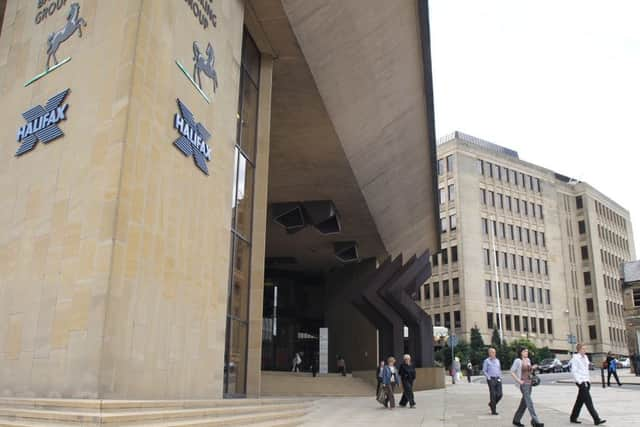We all pay the price if bank whistleblowers are ignored after HBOS collapse – Kate Kenny


In his opinion, HBOS customers, shareholders and the future of the bank itself were all in danger. A toxic sales culture had evolved. Managers were under pressure to meet targets. In turn, they put pressure on staff to sell as many financial products as possible.
Staff were selling loans to people who could never repay. It would eventually lead to the collapse of the bank. But back in 2004, Mr Moore was not listened to. He was fired for his efforts.
Advertisement
Hide AdAdvertisement
Hide AdAre things different in 2019? I am not sure. Whistleblowers provide an early warning sign when things are going wrong. Often dubbed ‘‘canaries in the coalmine’’, they can help avert a future scandal. And they can save organisations money.


One in every three serious economic crimes was highlighted by a whistleblower according to a recent survey. This makes whistleblowing more effective than all the usual watchdogs combined: corporate security, internal audits, and law enforcement.
So, these people are good for their organisations.
Financial whistleblowers are also good for the country. They can let us know when the financial system is in danger of collapse. Had people like Mr Moore been listened to in the run-up to the 2008 financial crisis, the risky practices being carried out by banks across the world would have been exposed well in advance. So-called government bailouts would not have been necessary. We might well have avoided years of austerity.
But whistleblowers can have a tough time. While doing my research, I met Mr Moore and others like him. They came from well-known banks. They had tried to expose things that their banks were doing. Whistleblowers had spoken out about their firms pressurisng customers to take on debt, or producing balance sheets that misrepresented the bank’s assets, for example. Ignored within their organisations, many also struggled to get the attention of the regulator.
Advertisement
Hide AdAdvertisement
Hide AdMore than a decade has passed since the crisis, but it seems things are not much better for financial whistleblowers today. Just this month we learned that Lloyds whistleblower Sally Masterton was ignored when speaking up about her bank’s role in serious defrauding of small business customers.
In 2018, we found out how a whistleblower’s identity had been revealed after he approached the Financial Conduct Authority. He had information about alleged criminal behaviour at RBS, but rather than ensure confidentiality. his name had been disclosed to the bank itself. This is not supposed to happen.
On the surface, change seems to be happening. In 2016, the FCA put in place new policies. Larger banks and investment firms would have to implement whistleblowing procedures, for example. They were required to appoint a senior person in charge of receiving disclosures.
And then, just before Christmas last year, we learned whether banks have done as instructed. The results were mixed. According to the FCA’s report, while most banks now have whistleblowing systems in place, the majority were failing to escalate and assess reports properly. Some firms did not adequately protect people who come forward. Most banks were not training the people tasked with receiving disclosures – a serious responsibility.
What will the regulator do in response?
Advertisement
Hide AdAdvertisement
Hide AdThe FCA has promised stricter new measures to protect financial sector whistleblowers – to be announced some time this year. These reforms will need to be tough if they are going to ensure a significant change. They will have to include sanctions for non-implementation, and for those people found to punish whistleblowers.
In addition we need a regulator who is willing and able to listen to whistleblowers who come forward, and to protect them from retaliations. My research with Warwick University’s Professor Fotaki – published this summer – shows that the cost of whistleblowing can be high—both financially and personally
For a healthy economy and a reputable financial sector, we need to start supporting whistleblowers. Finance has never been more difficult to regulate because it incentivises people to chase excess profits, even at the expense of ethics and the long-term survival of an organisation. It remains acceptable, in many cases profitable, to remain silent about wrongdoing.
What this all means is that a significant shift is needed, starting with helping employees to speak up. Otherwise the financial sector remains at risk of another crisis. And we may all be asked to foot this bill, just like last time.
Professor Kate Kenny is the author of a new book on whistleblowing in financial services called Whistleblowing: Toward a New Theory.